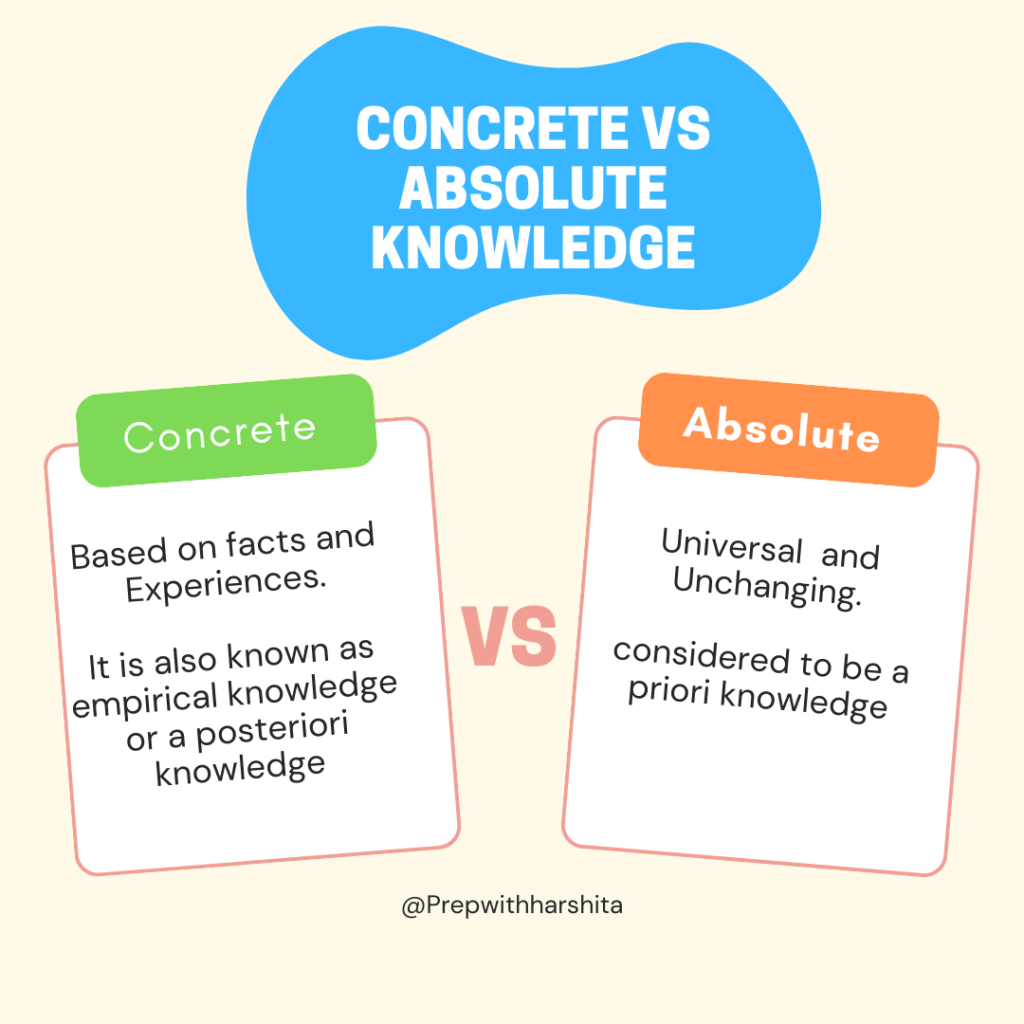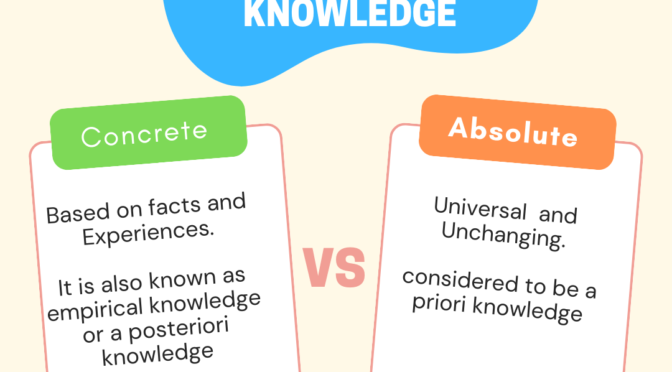Concrete knowledge is the knowledge that is based on specific, observable facts and experiences, while absolute knowledge is the knowledge that is considered to be universal and unchanging, independent of individual perspectives or experiences.
Concrete is often more empirical and can be proven through observation and experimentation whereas absolute knowledge is often more philosophical and may not be able to be proven in the same way.
Concrete knowledge refers to knowledge of specific facts, events, and things. It is the knowledge that can be verified and proven to be true or false through empirical evidence and observation. It is also known as empirical knowledge or a posteriori knowledge.
Absolute knowledge refers to knowledge that is considered to be true and certain without the need for any further justification or proof. It is often associated with philosophical and religious beliefs and is considered to be a priori knowledge, which is the knowledge that is known independently of experience.
In summary, concrete knowledge is based on evidence and experience, while absolute knowledge is based on belief and cannot be verified through observation or experimentation.
Also Read: Contextual and Textual Knowledge



Really nice layout and wonderful written content, nothing at all else we require : D.
I went over this web site and I conceive you have a lot of wonderful information, saved to favorites (:.
I have been exploring for a bit for any high quality articles or blog posts on this kind of area . Exploring in Yahoo I at last stumbled upon this web site. Reading this info So i am happy to convey that I have a very good uncanny feeling I discovered exactly what I needed. I most certainly will make sure to don’t forget this website and give it a look regularly.
I enjoy you because of all your valuable effort on this blog. My mother delights in managing investigation and it is easy to understand why. We all know all of the compelling mode you deliver very helpful tricks on the website and in addition encourage participation from some others about this article while our favorite daughter is really being taught a lot of things. Take advantage of the remaining portion of the new year. You’re the one doing a really great job.
I love your writing style truly enjoying this internet site.
me encantei com este site. Para saber mais detalhes acesse nosso site e descubra mais. Todas as informações contidas são conteúdos relevantes e únicos. Tudo que você precisa saber está ta lá.
Some genuinely fantastic blog posts on this web site, thanks for contribution. “It is not often that someone comes along who is a true friend and a good writer.” by E. B. White.